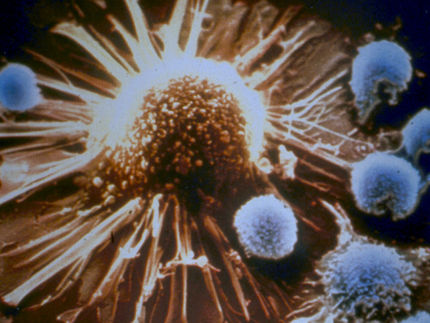European startups at the forefront of the fight against cancer
With nearly 1,500 entities, Europe hosts a larger number of cancer-related startups than the US
cancer remains a major health threat in Europe, which accounts for nearly 25% of global cases and over 20% of deaths, despite having less than 10% of the world's population[1]. Technological advancements are improving survival rates, with European healthcare systems showcasing excellence in cancer prevention and patient care. Ahead of World Cancer Day, the European Patent Office (EPO) has published its second study on cancer-related technologies, which provides an in-depth analysis of the fastest growing technology fields including cellular immunotherapy (where the number of patent applications grew at an average annual rate of 37.5% between 2015 and 2021), gene therapy (+31%) and image analysis (+20%).
The report, New frontiers in oncology, shows that Europe is losing shares of patent applications in these high-growth areas of cancer innovation compared to the US and China, dropping on average 5 percentage points in the top three fastest-growing fields. However, it also finds that Europe is home to the highest number of oncology-related startups, with some 1 500 entities, compared to 1 325 in the US.
"In light of Mario Draghi's report on the future of European competitiveness, the findings of this study serve as a wake-up call for Europe's oncology innovation system,” said EPO President António Campinos. “As cancer-fighting technologies rapidly evolve and move in unexpected directions, Europe must respond to keep its competitive edge in healthcare innovation and save lives. Europe’s vibrant oncology startups are a bright spot, but they need investment and support to scale-up their inventions.”
European startups stronger in early growth phases
The study shows that among the EPO member states, the UK leads with 290 oncology-related startups, followed by France with 246 and Germany with 208. However, a sharp contrast emerges
in growth stages: While Europe has more startups in the seed and early growth phases, the US significantly outpaces Europe in scaling startups to the late-growth stage. Nearly 40% of US cancer-related startups have reached this advanced stage, compared to just 24% in the EU and under 27% in other EPO member states, highlighting the challenges that European startups face in scaling successfully.
Research centres and universities play key role in cancer innovation
Almost half of all patents from EU countries between 2010 and 2021 originated from universities, public research organisations or hospitals. Beyond direct patenting activity, over 12% of the EU’s cancer-related patent applications originated at research institutions but were filed by companies. In other EPO member states, research institutions contributed nearly 30% of all patents, with 6.4% filed by companies.
Something is happening in the life science industry ...
This is what true pioneering spirit looks like: Plenty of innovative start-ups are bringing fresh ideas, lifeblood and entrepreneurial spirit to change tomorrow's world for the better. Immerse yourself in the world of these young companies and take the opportunity to get in touch with the founders.
See the theme worlds for related content
Topic world Gene therapy
Genetic diseases once considered untreatable are now at the center of innovative therapeutic approaches. Research and development of gene therapies in biotech and pharma aim to directly correct or replace defective or missing genes to combat disease at the molecular level. This revolutionary approach promises not only to treat symptoms, but to eliminate the cause of the disease itself.

Topic world Gene therapy
Genetic diseases once considered untreatable are now at the center of innovative therapeutic approaches. Research and development of gene therapies in biotech and pharma aim to directly correct or replace defective or missing genes to combat disease at the molecular level. This revolutionary approach promises not only to treat symptoms, but to eliminate the cause of the disease itself.























































